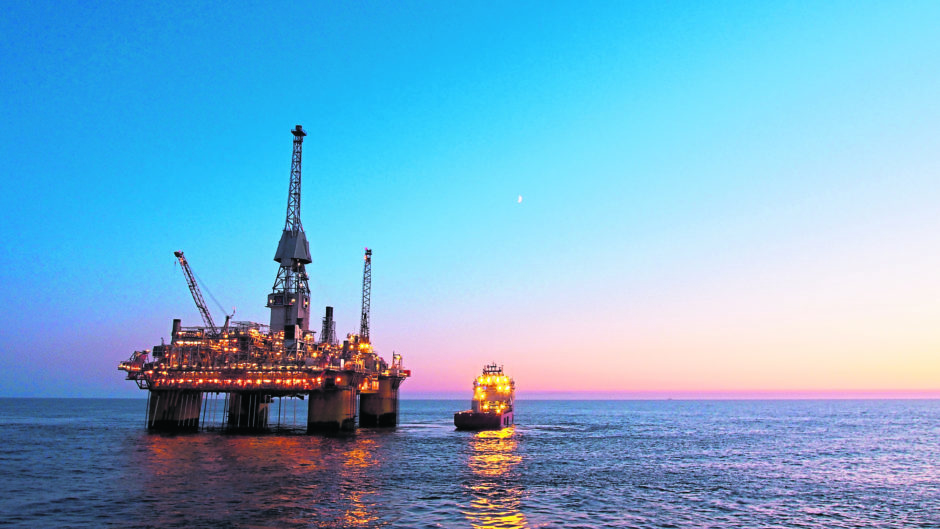
A slump in crude prices following the collapse of high-stakes talks today has created a “real danger” that North Sea oil firms will delay investing in new fields, a top petroeconomist said.
Prof Alex Kemp, of Aberdeen University, said production from existing fields would remain profitable thanks to the UK oil sector’s recent cost reduction drive.
But companies will not want to sanction new field developments until they have more confidence and clarity on oil prices.
Delays to projects would come as a blow to oilfield service companies who are keen to secure new contracts.
Oil prices went into freefall today after negotiations on production cuts between the Opec cartel and its former allies spectacularly fell apart.
Brent crude, the global benchmark, plummeted by around 8% to $46 per barrel, its lowest level since mid-2017.
Prof Kemp said the failure to agree on deeper output cuts was “bad news” for oil and gas producers worldwide, including in the North Sea.
He said continued uncertainty about the spread of the coronavirus and its lasting impact on crude demand growth was another “negative force” weighing down oil prices.
Prof Kemp said it was quite likely that the uncertainty would take months to resolve and that prices would stay lower in the short term.
He said: “At an oil price of between $40 and $50 per barrel, North Sea fields which are already developed will continue producing because their operating costs are significantly lower than $40 per barrel in most cases.
“The main effect of the oil price reduction will be on delivering final investment decisions on new fields. At a price of $40, not many new projects would produce a sizeable return.
“That’s the real danger point in the North Sea and other places around the world – the negative effect on investment in new fields.
“The result will be that companies hold off until the market situation gets clarified.”
PSYCHOLOGICAL BLOW
The failure of Opec and its former allies to agree deeper production cuts has dealt a “psychological blow” to the oil and gas market, an analyst said.
Opec+, a moniker for the pact between Opec and Russia, had propped up oil prices since the start of 2017 by agreeing to cap output.
Opec members said this week that they were prepared to lower production by an additional 1 million barrels per day (bpd) to offset the coronavirus’ impact on hydrocarbon demand.
But Opec would only sign off on those reductions if its allies, led by Russia, agreed to cut 500,000 bpd at the same time.
Saudi Arabia, de facto leader of Opec, also wanted to extend existing curbs of 2.1m bpd that are set to expire at the end of this month.
During talks in Vienna today, Riyadh was unable to get Moscow’s blessing for deeper cuts. Russia, which has built up a resilience to lower crude prices over the last five years, argued it was too early to make predictions about the virus’ lasting effect.
Ann-Louise Hittle, analyst at Wood Mackenzie, said: “The market is now facing the spectre of unrestrained production once the current Opec+ agreement expires in March. However, we do not think Saudi Arabia will push hard to lift their output in the northern hemisphere spring.
“Given weak demand and the likelihood this weakness will persist into the second quarter, it will be hard for any producer to increase output sharply once the original production deal expires.”
Ms Hittle added: “If the impact the coronavirus has had on global oil demand is sustained, then by the second half of the year we’d expect to see weaker GDP. This will have a far greater impact on oil demand than just temporary reductions in jet fuel and gasoline demand.
“A longer, sustained outbreak of coronavirus threatens to hit oil demand with a double whammy: already weak demand will soften further because of containment measures, and this will weaken GDP.”
Recommended for you

